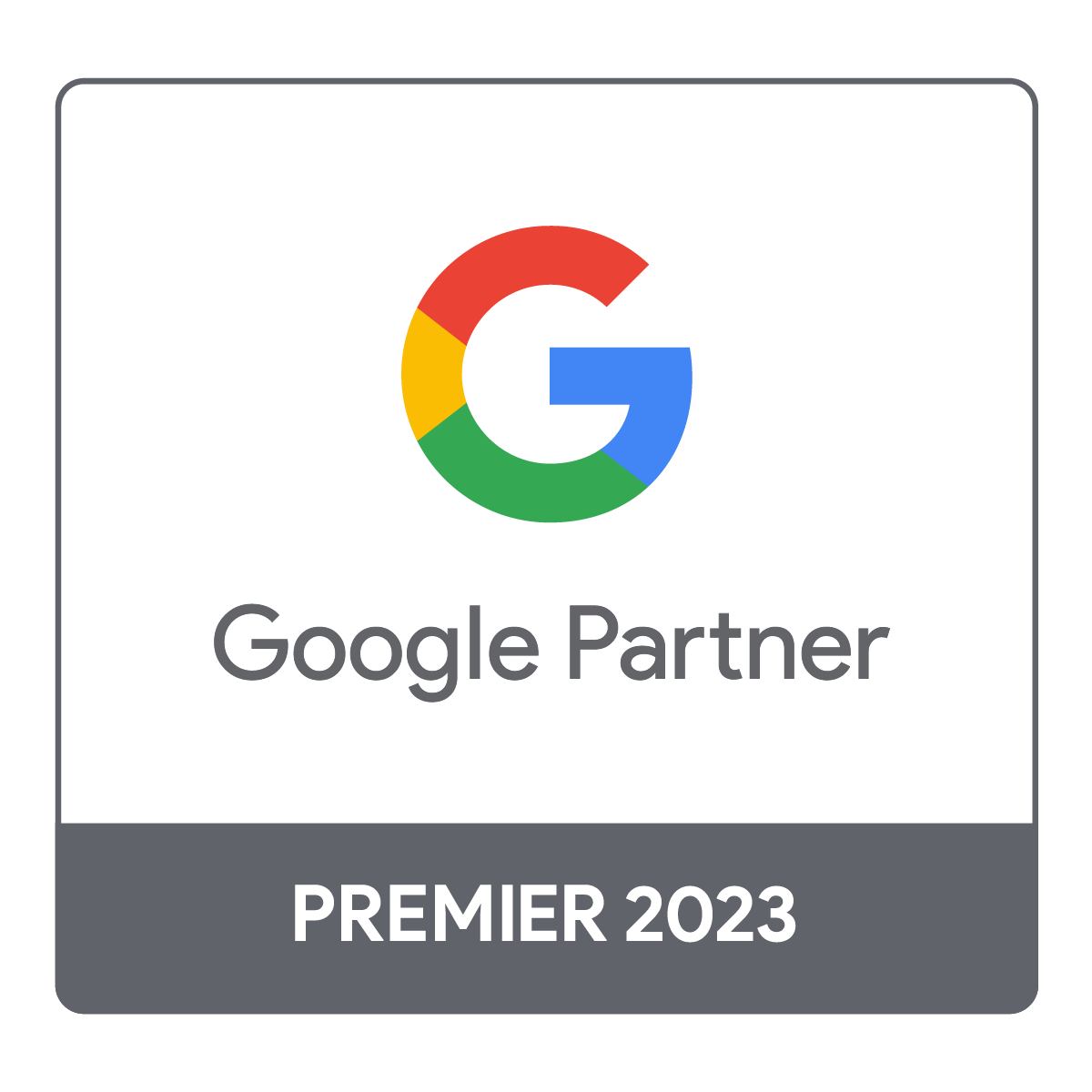How To Do Local Keyword Research In 2022: The Ultimate Guide
Local SEO keyword research is an integral part of search engine optimization as it relates to the process of hunting down what people are searching for on search engines. It also involves tailoring the research to the local area(s) where you do business.
In a nutshell, the objective of this is to pinpoint localized keywords that attract high-targeted local traffic to your website. Your local traffic will do a local search for a local business.
While it may seem like a long and arduous process, it is rather simple and incredibly beneficial. To break it down into digestible nuggets, local keyword research enables you to develop a firm understanding of what your target audience is looking for when searching for services and products you may be offering.
This is extremely important for business owners that have a deep-rooted desire to increase their reach in specific geographic areas.
Now that it’s explained out a little more, it may seem fine and dandy. But, a big question remains – how do you do local keyword research effectively? Are there any specific local keyword research tools?
In this article, we will delve into the depths of local keyword research and everything you need to know about it in order to make it work for your business.
Table of contents.
Why finding local keywords matters.
Let’s be honest, it is a question many of us have asked before. Essentially, it is vital to conduct local keyword research as it provides you with useful insights into the words that people use on search engines when looking for business products or services that are applicable to your business.
Upon entering these keywords, Google or other search engines will show them websites that it deems to have the best solutions. Simply put, you want your website to show up at the top.
People may ask if it is possible to guess which keywords are best, but this, quite frankly, is a disaster waiting to happen. How do you know if your existing keywords are still relevant?
Ensuring your business is seen and appears at the top of Google or other search engines requires effective strategic data analysis regarding the local SEO trends. Since this can deeply impact your business, it is in your best interest to dive down to the very depths when doing local keyword research.
Upon discovering the main keywords your target audience is searching for, it is time to add them into your website copy. Once you do this, you will see a spike in your ranking and website traffic, while also generating sales regularly for many years to come.
How to do local keyword research.

It can be tough to nail down all the keywords that your business can rank for as there may be plenty out there that can be associated with the products and services you offer.
Luckily, we have put together five simple steps to follow when doing local keyword research.
Step 1. Make a list of all the services you offer.
Let’s start by identifying the type of products and services your business provides to its customers. In order to do this effectively, we recommend:
1. Brainstorming and thinking
Start by brainstorming and writing down every single product and/or service your company offers and make sure you don’t leave anything out!
More often than not, the type of services you offer is broader than what you initially believe.
For example, an SEO agency might prioritize SEO, but also offer digital marketing strategies, website design optimization, and Google ads support.
Also, consider are there any keywords to phrase match? This takes into account matching behavior, whether that be bmm keywords or exact match keywords. You may also want to check conversion volume too for your expected search results.
The same applies if you are working for another company – be sure you are provided with a comprehensive and complete list of their products and services.
2. Push the research further.

Brainstorming is necessary, but rarely is it enough to identify the local keywords that will help you rank on the first page of Google or any other search engine.
Don’t be afraid to venture outside the box when thinking about all the relevant keywords people are searching for when looking for the products or services you provide.
To summarize, do the following and you’ll get a pretty good idea of the related keywords that you need to target.
1. Enter your ideas in Google bar
2. Select your region
3. Look at the related words and sentences that come up
3. Refine your list.
Once you have found the local keywords, review it on your own, with your team, or with the company you work for to ensure you have the most accurate and appropriate ones.
This part is incredibly important, so it is best not to rush it!
Instead, spend all the time needed to build a strong platform to launch from, whereby you have relevant and effective keywords that can drive your ranking, traffic, and sales through the roof.
Step 2. Look for local intent.
Local intent refers to any query where the user is solely looking for a local result. For example, someone living in Sydney who is searching for a social media agency in Brisbane is still executing a query with local intent.
The main objective when doing local SEO is to rank highly for specific keywords in the region you are targeting. Therefore, you want to be targeting people that are in your targeted area who are specifically looking for local businesses offering the products or services they want.
You might be wondering how to measure local intent effectively. We’ve got you covered.
Essentially, there are two ways to look for local keywords depending on where you and your business are located:
- If you live in the same area where you provide your services, you can assess local keywords easily by searching about your services on Google. Identifying intent is easy in this case as Google automatically uses your location to personalize your search.
To identify local keywords, check the information on the map pack and identify the local businesses that are ranking organically on the search engine results page.
- If you are living outside the region the business is located, use Google’s Ad Preview Tool to see a local search engine results page.
To do this, enter the search term related to your services in Google’s Ad Preview Tool, set a location, and hit search. Look for the keywords local businesses are ranking well for and analyze the map pack.
To attract customers in a specific area and catapult your sales, local SEO and local keyword research is the way to go.
Step 3. Analyze search volumes.
A majority of the SEO tools available show large-scale volume, which makes it challenging to obtain accurate search volumes for local keywords.
The truth is that search volume is not critical to your success for local SEO. Since you are operating in and targeting a very specific area, there might not be a huge influx of visitors.
However, it is still essential to identify the necessary local keywords and get your page as high on the search results as possible in order to ensure it becomes visible to the people you want to reach.
So how can you find local search volume? Well, we’re glad you asked.
When it comes to local keywords, you can either find volumes for implicit or explicit keywords:
1. Finding search volume for implicit keywords.
Implicit keywords refer to the keywords people use to find local results without mentioning the location. For example: Marketing agency.
The issue with implicit keywords is that if you check the search volume on a keyword research tool, the results won’t reflect your targeted local area.
Below is the process to check the volume of implicit local keywords in the location of your choice using Google Keyword Planner:
1. On Google Keyword Planner, click on get search volume and forecast
2. Type your implicit keywords and services
3. Type the location you wish to target
Google Keyword Planner is one of the best tools to evaluate the search traffic of implicit keywords, so ensure you use it wisely!
2. Finding search volume for explicit keywords.
Explicit local keywords refer to research where the users specifically indicate the location they are looking for when browsing for specific products or services. For example: Marketing agency in Singapore.
In this case, the keywords are pretty simple and already have local intent.
Thus, it is best to use a keyword research tool to check the search volumes of your local keywords.
Step 4. Group and map keywords to URLs .
It’s important to note that local keyword research is not strictly limited to finding keywords. It also revolves around understanding your target audience searching for these terms and the ideal ways to target these keywords in order to get them to see your products or services.
Realistically speaking, your home page isn’t going to be among the top-ranked sites for every product or service you offer. This is why it is essential to create separate pages for every product or service.
While this may sound like a long and arduous process, take a step back and think about the products or services that would be most useful for your visitors. Once you have this in mind, it is necessary to create different pages that cater to those particular products or services.
Step 5. Find other things to mention.
While it is a tempting proposition to put as many keywords as possible in your content, the truth is that it will do more harm than good.
This is because keyword stuffing is a form of black hat SEO that will result in your website being penalized by Google and other search engines.
Instead, it is beneficial to find things to mention that are relevant and useful for your audience. For example, you could add your pricing, locations, and FAQs.
If you are struggling to find things to mention, use the following as a guideline:
- Check how keywords are ranking on similar pages
- Analyze the top-ranking page and their content
- Check for common questions that your target audience is asking in the People also ask Google section.
Finally, tracking keyword performance on a consistent basis is crucial to continually improve your ranking. To do so, you can use a tool like Ahrefs’ Rank Tracker.
What if I need to target multiple locations?

If you are offering your products or services across multiple locations, don’t fret. You won’t need to do everything from scratch. Simply add your locations and business details on your contact page or create a specific landing page for each location.
Local keyword research for blogs.
Honestly speaking, it is highly unlikely that blog posts will bring a ton of business your way. This is simply due to the fact that the keywords blogs rank well for rarely have local intent.
If you want to attract customers from your local area, your main focus should be on your website rather than writing blog content.
The key-word to success.
Local keyword research is one of the best ways when it comes to targeting people in your local area and bringing in customers. Once you have found all the keywords you want to target, it’s time to focus on your site’s SEO. This may be much more complex, but the rewards are oh so sweet as it can drive traffic to your website through the roof and catapult your sales to incredible new heights.
Should you require any support with local keyword research or SEO, or have further questions, please feel free to contact us.
What else can you do to improve your digital marketing apart from local SEO keyword research?
As you are well aware, keeping ahead of the competition requires time and money. Keyword research is the basis of so many digital tactics that can boost your authority on search. What more can you do to improve your marketing ROI? We have some great marketing blogs that can guide you to marketing success:
- Perfect Your Email Marketing Strategy Now
- What Are The Top Ppc Ideas You Ought To Know?
- Social Media Strategies: Successful Ones You Can Learn From
- Helpful Content Tips: Get Noticed Before The Competition
- 6 Easy Digital Marketing Hacks To Increase Your Leads
If you are a busy small business owner or entrepreneur, you probably have a lot on your plate. If this is the case, we encourage you to review some of our strategic marketing services to drive more sales and keep you ahead of the competition:
- SEO for your business to drive qualified leads
- Social media management for improved brand awareness
- Linkbuilding to drive organic traffic to your website
- Top converting landing pages to convert your leads
- Email marketing campaigns to bring in referrals
Local SEO FAQs
What are search queries?
Search queries are the key to a successful SEO strategy – after all, what’s the point of optimizing your website if no one is searching for the keywords you’ve targeted? A search query is simply the keyword or phrase that a user types into a search engine in order to find websites relevant to their needs. Of course, SEO isn’t just about choosing the right keywords; it’s also about making sure your website is optimized for search engines so that your target keywords will rank highly in search results. However, the foundation of any good SEO strategy starts with choosing the right search queries.
What does bmm mean (broad match modifier)?
Broad match modifier is a keyword matching option that allows you to control how closely related your keywords have to be to the search terms used by potential customers. When you use a broad match modifier, you’re telling Google that your keywords must be included in the customer’s search term for your ad to appear. For example, if you’re selling blue widgets and using the broad match modifier keyword “blue widgets,” your ad will only appear if the customer searches for “blue widgets.” If they search for “widgets,” “blue,” or even “widget blue,” your ad won’t appear. While this may seem a good way to restrict your audience, it can work against you. By using a broad match modifier, you may be missing out on potential customers who don’t use the exact same keywords that you do. As a result, you should use broad match modifiers judiciously and only when you’re confident that you’re targeting the right audience.
What does phrase match mean?
Phrase match is a term used in search engine optimization (SEO) that refers to the matching of a specific phrase entered by a user with the content of a web page. Phrase matching is an important part of SEO because it helps to ensure that the user will find what they are looking for on your website. When a user enters a phrase into a search engine, the search engine will look for web pages that contain that phrase. If your web page includes the phrase, then it will be more likely to show up in the search results. As a result, phrase matching can help to increase traffic to your website.
How can I benefit from phrase-match keywords?
If you’re a savvy online marketer, you know that phrase-match keywords can be a powerful tool. By targeting specific phrases, you can more effectively reach your target audience. And when it comes to phrase-match keywords, there’s no one better than Google. Google’s AdWords program allows you to target specific phrases and match them with relevant ads. As a result, you can reach your target audience more effectively and improve your bottom line. So if you’re looking to benefit from phrase-match keywords, Google is the way to go.
What does exact match mean in SEO?
If you’re new to the world of SEO, the term “exact match” might sound a bit confusing. Put simply, exact match refers to the use of exact keywords in your content. For example, if you’re selling “red Widgets,” you would want to use the exact phrase “red Widgets” in your title, description, and product page. This tells Google that your page is relevant to people who are searching for “red Widgets.” Exact match is just one of many factors that can help improve your SEO, but it’s an important one. So next time you’re creating content, be sure to keep exact match in mind!
What is a broad match keyword?
A broad match keyword is a keyword that is matched to a broad range of search queries. This type of keyword is usually used when someone wants to target a broad audience with their ads. For example, if someone is selling shoes, they might use the broad match keyword “shoes” in their ad. This would allow their ad to be shown to people who are searching for a wide variety of terms related to shoes, such as “sandals,” “athletic shoes,” and “dress shoes.” While broad match keywords can be beneficial for reaching a large audience, they can also result in a lot of unqualified traffic. Therefore, it’s important to carefully consider whether or not a broad match keyword is right for your needs before using it in your ad campaigns.
What are negative keyword match types?
Negative keyword match types are a tool that allows you to exclude certain keywords from your campaigns. This is useful if you have a general keyword that is getting a lot of impressions but not many conversions. By adding negative keyword match types, you can make sure that your ad is only shown to people who are interested in what you’re selling. There are four different negative keyword match types: broad match, phrase match, exact match, and negative Broad Match. Each one has its own advantages and disadvantages, so it’s important to choose the right one for your campaign. negative keyword match types can be a great way to improve your click-through and conversion rates while saving you money.
Should you remove redundant keywords?
Should you remove redundant keywords? The answer is maybe. If the redundant keywords are helping your website rank for relevant searches, then you may want to keep them. However, if the redundant keywords are not helping your website rank or are drawing users to irrelevant pages, then you may want to remove them. Ultimately, the decision of whether or not to remove redundant keywords is up to you and will depend on your website’s specific needs.
What are broad match modifier keywords?
Broad match modifier keywords are a type of keyword that allows you to modify your broad match keywords to make them more specific. For example, if you’re bidding on the keyword “flowers,” a broad match modifier keyword would be “flowers + delivery.” This would allow you to target people specifically looking for flower delivery services. Broad match modifier keywords can be a great way to improve your targeting and ensure that your ads are being seen by people who are interested in what you have to offer.
What is a phrase match keyword?
Phrase match keywords are the ones that people use when they are looking for something specific. For example, if you want to buy a new car, you might use the phrase “buy a new car.” Phrase match keywords are great because they help you to target your audience more effectively. However, they can also be tricky to use because if you use too many of them, you may end up getting less traffic than you would have otherwise. So, if you’re going to use phrase match keywords, be sure to use them wisely!
Is it ok to have duplicate keywords?
SEO experts have been debating the merits of duplicate keyword usage for years. Some argue that it’s perfectly fine to use the same keyword multiple times, as long as it’s done in a way that sounds natural. Others believe that using duplicate keywords is a surefire way to get penalized by Google. The truth is, there isn’t a definitive answer. Google’s algorithms are constantly changing, and what works today might not work tomorrow. So if you’re wondering whether or not to use duplicate keywords, just do what feels right for your site. And if you’re really worried about it, you can always consult an SEO expert.
Can I use keywords in my Google Ads?
Google Ads is a powerful tool that can help you reach your target audience. But can you use keywords in Google Ads? The answer is yes! Google Ads allows you to target your ads using keywords. Keywords are words or phrases that are associated with your product or service. When someone searches for a keyword that is associated with your ad, your ad will appear in the search results. Keywords can be broad or specific, and they can be general or brand-specific. You can use Google Ads to target keywords that are relevant to your business. For example, if you sell shoes, you could target keywords such as “shoes”, “women’s shoes”, “men’s shoes”, or “kids’ shoes”. By targeting relevant keywords, you can ensure that your Google Ads are seen by people who are interested in what you have to offer. So go ahead and use keywords in your Google Ads!
Should I vary my keywords in the same ad group?
Google Ads is a complex system, and there are a lot of different factors to consider when setting up your campaign. One of the most important decisions is choosing which keywords to target. Should you use the same keywords for every ad in your group, or should you mix things up?
There’s no easy answer, and the best approach will vary depending on your business and your goals. However, in general, it’s a good idea to use a mix of different keywords in each ad group. This way, you’ll be able to reach a wider range of potential customers and maximize your chances of success. So, if you’re still undecided, remember that variety is the spice of life – and it can also help you win at Google Ads.












